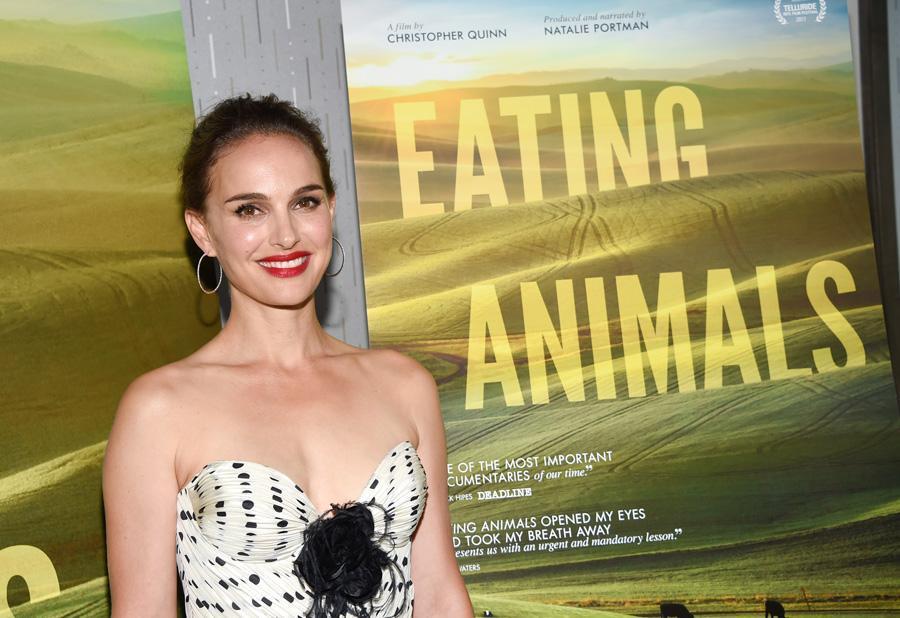Natalie Portman, Jonathan Safran Foer target factory farming
NEW YORK - AP

Natalie Portman and Jonathan Safran Foer hope they can change the world - one dinner plate at a time. The actress and the author have teamed up to produce the documentary "Eating Animals," an indictment of the factory farm system that argues we are feeding ourselves all wrong.
The film takes viewers from a Perdue contract farmer in Fairmont, North Carolina, who is knee-deep in both debt as well as chickens suffering horrific abnormalities, to a small free-range pig farm in Thornton, Iowa, where the animals roam freely.
The filmmakers visit various farms to make the case that animals confined indoors in massive factories, fed antibiotics, genetically altered and bred for the most meat isn't inevitable.
"I literally cannot conceive of the person who isn't a psychopath who would walk into a factory farm and say, 'Looks good to me,'" Foer tells.
"We don't all have to reach the same conclusion but we have to begin at the same starting point, which is, 'These are the facts of the world. This is how our farming system works. And we have a choice.'"
Directed by Christopher Quinn, the film is the feature-length adaptation of Foer's critically acclaimed book of the same name. But while the book is a whirlwind and freewheeling expression of the author wrestling with the notion of meat, the film largely looks at the issues facing livestock farmers.
"I was telling a story not documenting something," said Foer, who began exploring the origin of meat as he was becoming a first-time father. "And the film is a documentary, rather than something in the storytelling tradition. It does things the book can't do and doesn't do, just as the book does things the film can't do."
Portman, who narrates using portions of Foer's text, says filmmakers never intended to just show 90 minutes of horrific footage smuggled out of inhumane factory farms or their environmental consequences.
"The point was to make something watchable. We want people to see it. You don't want someone so disturbed that they want to leave or not watch anymore. You want to continue the conversation," she says.
"The focus of the film is these farming practices that we've lost - the traditional, really American ways that really pay attention to the beauty and the detail and the hard work it takes, and the respect for the land and animals that's really being disrespected."
















